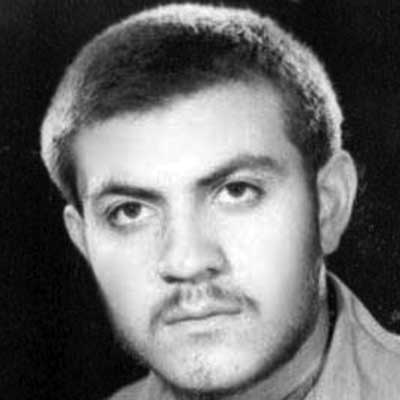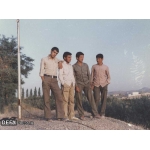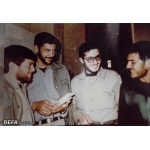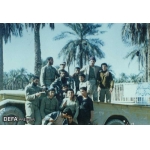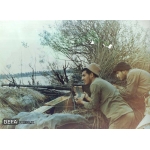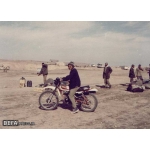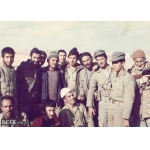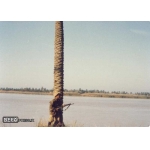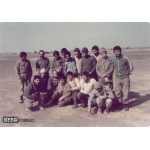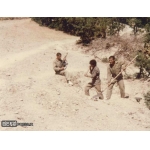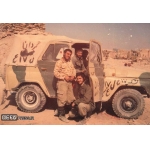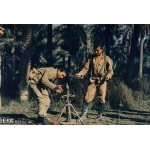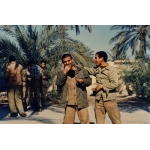Ojaqlu, Taher
Masoumeh Abedini
338 بازدید
During the Iran-Iraq War, Taher Ojaqlu (1943-1984) served as the Deputy of Planning and Programs of the 17th Ali ibn Abi Talib Division.
Born in 1943 in the village of Qahiran, Zanjan, in a family of seven, he was the second child. He completed his elementary education at Khaqani and Dehkhoda Schools, his intermediate education at Anvari School, and his secondary education at Dr. Ali Shariati High School. As the Iranian revolution against the Pahlavi regime reached its climax under the leadership of Imam Khomeini (ra), Ojaqlu began his political and revolutionary activities. He would bring Imam Khomeini’s proclamations home and distribute them with the help of his close friends at night in the streets.
Following the triumph of the Islamic Revolution and the onset of the tensions in Kurdistan in 1979, Ojaqlu was deployed to Marivan after undertaking an intensive military training course. After returning to Zanjan he continued his education. However, he joined the Islamic Revolutionary Guard Corps (IRGC) when the Iraqi Baathist army launched a full-scale invasion of Iran in September 1980. He was entrusted with commanding a battalion and eventually became the Deputy of Planning and Programs of the 17th Ali ibn Abi Talib Division due to his bravery and competence. He participated in numerous operations, including Thamen al-Aemah (the liberation of Abadan), Fath al-Mubeen, Ela Beit al-Muqaddas (the liberation of Khorramshahr), Ramadan, Valfajr 2, as well as ones conducted in the western part of the country. Furthermore, he played a key role in reconnaissance missions before operations.
His hand and shoulder as well as neck were injured during operations Thamen al-Aemah and Ela Beit al-Muqaddas respectively. On March 12, 1984, during Operation Kheibar which was conducted on Majnoon Island, Ojaqlu was shot by a bullet and was martyred. After the funeral ceremony held in Zanjan, his body was buried in the Martyrs' Cemetery of the city.
In a part of his will, Taher Ojaqlu wrote: “We have been created to be tested, and in essence, this world is nothing but a test for humanity. Man would enjoy eternal life in the Hereafter”.[1]
[1] A Summary of an article published in the Sacred Defense Encyclopedia, Vol. 1, Tehran, The Center of Encyclopedia of the Sacred Defense Research Institute, 2011, Pp. 344-345.


